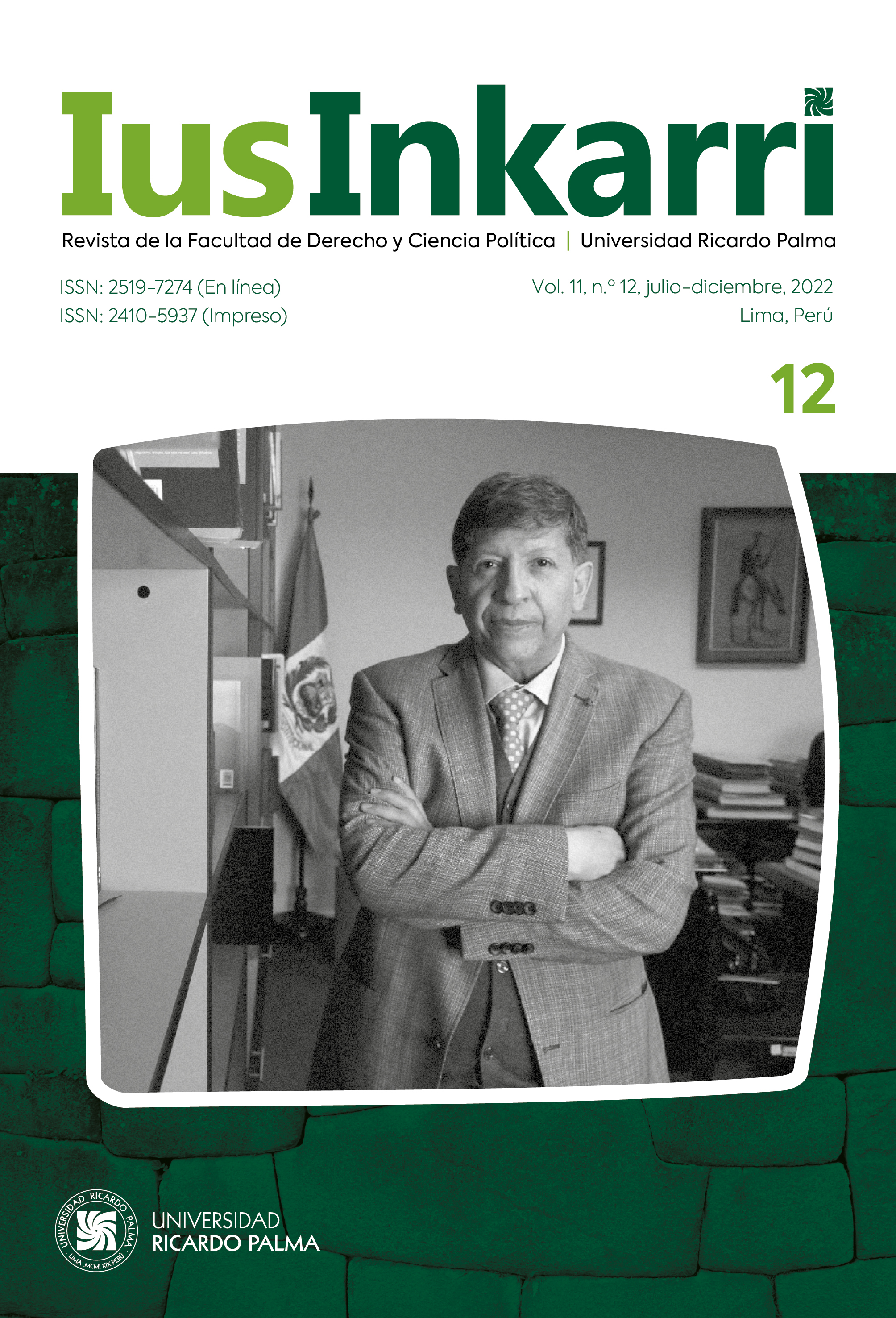The words of war: Four days of the Chilean October 2019
DOI:
https://doi.org/10.59885/iusinkarri.2022.v11n12.15Keywords:
war, social outbreak, emergence, political interpretation, friends and enemiesAbstract
On September 4, 2022, the proposal for a New Constitution emanating from the Chilean Constitutional Convention was rejected and this has been explained in various ways. An interesting approach is the one that can arise from the Law and Literature approach, specifically, its category of "Law as literature". If a Magna Carta is the instrument where the most relevant legal words for a country are enshrined, it may be useful to carry out a philological examination of the words of the revolt of October 18, 2019, a fact that paved the way for the demand for a New Constitution. For this, I will resort to my own Political Journal in order to focus on the beginning of the outbreak, where with regard to the word "war", I maintain that there was an appearance of Chilean citizenship with characteristics that made possible a political interpretation of the phenomenon in key friend enemy. I will argue that the word "war" seeped into the word politics and may have influenced the word constitutional. To describe that appearance of Chilean citizenship during the outbreak, I will use the formulation of the question "Who am I?" of Hannah Arendt, of her reflections on the appearance in the public space and the division between friends and enemies of Carl Schmitt. I will end with some conclusions.
Downloads
References
Arendt, H. (2019). La condición humana. Paidós.
Bassa, J. (2020). Chile decide por una Nueva Constitución. Planeta.
Clausewitz, K. von (2003). De la guerra. Astri.
El Mostrador (2021, 30 de agosto). Jaime Bassa tras críticas a propuesta para reemplazar a Carabineros: «No nos vamos a dejar pautear por lo que puedan expresar los poderes constituidos». https://www.elmostrador.cl/dia/2021/08/30/jaime-bassa-tras-criticas-a-propuesta-para-reemplazar-a-carabineros-no-nos-vamos-a-dejar-pautear-por-lo-que-puedan-expresar-los-poderes-constituidos/
Gamper, D. (2019). Las mejores palabras. De la libre expresión. Anagrama.
Kant, I. (2001). Ante la Revolución Francesa. En Aramayo, R., Immanuel Kant. La utopía moral como emancipación del azar (pp. 186-190). Edaf.
Karmy, R. (2022, 20 de abril). El fantasma portaliano: desprecio y violación a la República. CIPER Chile. https://www.ciperchile.cl/2022/04/14/el-fantasma-portaliano/
Klemperer, V. (2020). LTI. La lengua del Tercer Reich. Apuntes de un filólogo. Minúscula.
Martínez, J. L. (1985). La nueva novela. Ediciones Archivo.
Mouffe, C. (2007). En torno a lo político. Fondo de Cultura Económica.
Navarro, F. y Tromben, C. «Estamos en guerra contra un enemigo poderoso, implacable»: los discursos de Sebastián Piñera y la revuelta popular en Chile. Literatura y Lingüística, (40), 295-324.
OPLAS (2022, 27 de mayo). Fernando Atria: «De lo que se trata es que la nueva Constitución ponga a Chile en un camino de reconstitución de la convivencia social y política». https://oplas.org/sitio/2022/05/27/fernando-atria-de-lo-que-se-trata-es-que-la
Peña, C. (2020). Pensar el malestar. La crisis de octubre y la cuestión constitucional. Taurus.
Salazar, G. (2019, 27 de octubre). El «reventón social» en Chile: una mirada histórica. CIPER Chile. https://www.ciperchile.cl/2019/10/27/el-reventon-social-en-chile-una-miradahistorica/
Schmitt, C. (2009). El concepto de lo político. Alianza.
Stern, S. (2009). Recordando el Chile de Pinochet. En vísperas de Londres 1998. Ediciones Universidad Diego Portales.
Valdivia, V. (2010, enero-junio). «¡Estamos en guerra, señores!». El régimen militar de Pinochet y el «pueblo», 1973-1980. Historia, 1(43), 163-201. http://dx.doi.org/10.4067/S0717-7194201000010000
Published
How to Cite
Issue
Section
License
Copyright (c) 2022 Camilo Arancibia Hurtado

This work is licensed under a Creative Commons Attribution 4.0 International License.













